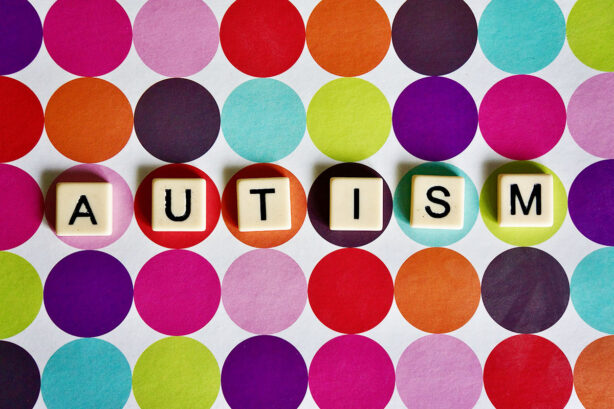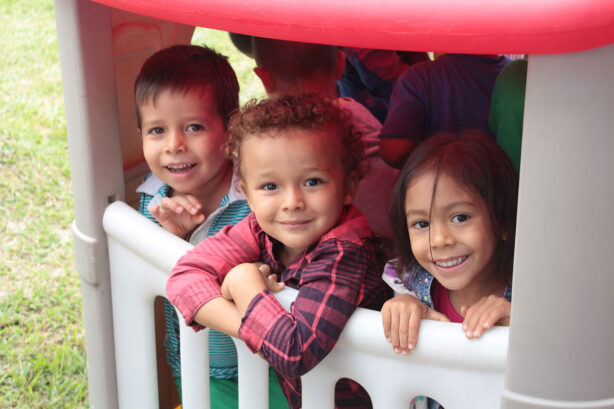Autism, also referred to as Autism Spectrum Disorder (ASD), is a complex developmental disability that impairs a person’s communication, behavioral and social skills.
It is a lifelong disability that manifests itself during early childhood. DC statistics on Autism indicate that about 1 in every 44 8-year old children has autism in the US.

It can be difficult to recognize signs of autism in children, especially when they’re very young. The symptoms often go unnoticed because autism cannot be diagnosed using medical tests like a blood test.
Also, pediatricians often prefer to give children a chance to develop on their own without branding a child as autistic, because children do develop at different rates.
While you work with your doctor on a potential diagnosis, it can be helpful to try an autism screening tool like the one offered by actionbehavior.com, a company that works to support children with autism through Applied Behavior Analysis therapy.
Diagnosis of autism as early as possible is essential, as understanding how autism affects learning and arranging appropriate treatment and educational support can help prevent the condition from worsening.
Here are some of the most common early signs of autism, as well as tips on supporting a child with autism:
Early Signs of Autism
Some early signs of autism start appearing between the ages of 1 to 2 years. However, the signs can change over time. Some behaviors might become more evident, while others might disappear altogether.
Communication Differences
- Not saying single words by the age or 15 months or 2-word phrases by the age of 24 months
- Mixing up pronouns e.g. referring to others as “I” and self as “you”
- Showing little to no interest in communicating
- Inconsistently responding to their name being called out by the age of 9 months
- Does not or rarely copies other people e.g. talking, laughing or acts such as combing their hair
Social Differences
- Does not or avoids making or keeping eye contact
- Not noticing when others are hurt or sad even after 24 months of age
- Difficulties at making and keeping friends
- Not playing games that involve turn taking by the age of 5 years
Behavioral Differences
- Delayed movement skills
- Extremely sensitive or not sensitive at all to sensory experiences such as smell, touch, lights, and sounds
- Lack of fear or more fear than expected
- Delayed cognitive or learning skills
- Insists on following certain routines

How You Can Support Children with Autism
To help a child with autism, it is crucial you first learn all you can about autism and get involved in the treatment process. Parenting a child with special needs isn’t easy, and information about the condition can help a lot.
Additionally, try using the tips below to support a child with autism:
Communicate Clearly – Children with autism have impaired communication and interpretation ability. Therefore, when communicating with an autistic child, ensure you are clear.
Watch out for your words and the structure of the sentences. Keep your communication simple and direct, and avoid using metaphor and rhetorical questions.
Reward Positive Behavior – Be positive when dealing with a child with ASD. When it comes to rewarding good behavior, make sure to work with your child to find a reward system that they actually find motivating.
Rewards can be used to help a child settle into a new routine, or develop a skill they don’t have an interest in. If you’re having trouble finding an effective way to use praise and rewards to motivate, consider talking to a professional for ideas and support.
Find Non-Verbal Ways to Connect – Children with autism may have problems communicating using words. As a result, it is important to meet them halfway if you want to communicate and bond with them.
Be observant, and notice the nonverbal cues a child might be using to communicate. If the child throws a tantrum, try as best you can to figure out the reason behind the reaction. Also, keep watch on the child’s sensory sensitivities.
Establish a Routine – Children with autism like order, routines, and rituals. That is why they have difficulties accepting change or transition in routines and activities.
To avoid subjecting them to anxiety-inducing and confusing activities, establish a routine with them. Create a timetable using images and simple words.
When the time comes for preschool or grade school, enroll the child in classes that focus on their strengths and provide an environment that’s friendly to autistic children. Routine gives autistic children a sense of security.

While an early diagnosis of autism is the best case scenario, the simple fact is that it might take months, or even years, to finally get the diagnosis and information you need to support a child with ASD.
As hard as it might seem at times, remember to stay patient, stay positive, and don’t be afraid to bring any concerns to your family doctor.
With autism awareness on the rise and new treatments being studied more than ever, early diagnosis and treatment for children with ASD is something that we can all hopefully look forward to in the future.
